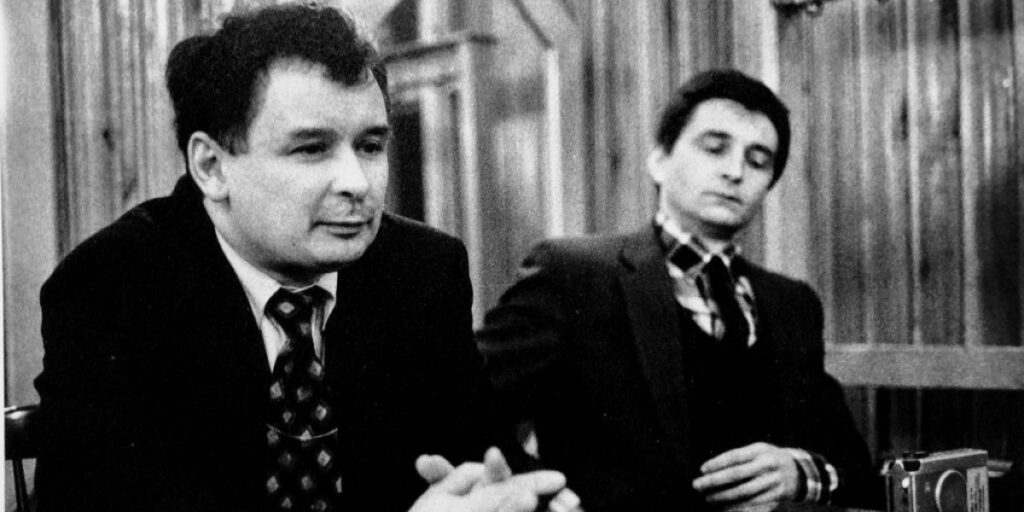Photos, films, memories, archival materials of the Security Service, profiles of various people associated with opposition and civic activities in Przemyśl in the years 1967-1997 - all of this can be found on the Freedom Archive website, which was created thanks to the funding of the Polish History Museum in Warsaw as part of the "Patriotism" competition tomorrow."
The aim of the project is to present the history of people and events in the region of south-eastern Poland, who directly and indirectly participated in the process of building freedom in the times of communist enslavement, in a country isolated at that time from contacts and influences of the free world.
Can freedom be archived?
Marek Kuchciński: You can archive memories and we started doing it on the portal Archive of Freedom - Przemyśl Land and Region 1967-1997 (archiwumwolnosci.pl) There are mainly stories of people who helped Poland regain this freedom through their actions. What the younger generation does not always realize is that we lived in a country where every word had to be weighed, where almost everyone was watched, followed, often blackmailed and forced to inform on their own friends and even family, in a country where where you could feel the icy breath of Soviet Russia and the censorship of its loyal disciples on your back.
What is the innovation of this project?
We decided to collect the memories of the participants of the events from those years, their assessments from today's perspective, but provided from them without hiding their emotions and this is the great value of the portal. Of course, there are IPN materials, historical studies, but we want to recall that reality through the eyes of its creators in a very personal, slightly sentimental way. To show the richness of life in Poland on the example of a small community.
Here the message is direct, it is a kind of memory base. We collect multi-generational memories, we count on commitment. We would like the portal to live, to share experiences and photos. Reading the already published memoirs, I recall many events myself and I feel like commenting, adding something. I cordially encourage you.
In Przemyśl, you have recently reactivated the Cultural Society…
Yes, together with friends from those years and the portal is one of his initiatives. When in the 1980s we organized meetings of an independent milieu, later called the cultural attic, apart from politicians, they were mainly attended by people of culture - poets, painters, musicians... At that time, art gave a sense of freedom, the opportunity to catch a deep breath and commune with something beautiful, which this gray reality was extremely important.
Do you think that those ideas can be transferred to today's ground?
Wtedy one były niepopularne, a zrozumienie porządku cywilizacyjnego z perspektywy lokalnej było jednak mocno skomplikowane i celnie opisał to. Krzysztof Dybciak: „…wymagające cywilnej odwagi. Na przykład wyrywając się z bloku komunistycznego idealizowaliśmy Zachód. Oczywiście, nie była to Europa tak dekadencka jak obecnie, ale nie była też rzeczywistością bez skaz, a taką chcieliśmy ją widzieć i taką głosiliśmy w sporach ze zwolennikami ustroju komunistycznego. Dlatego chyba tylko w przemyskim środowisku i w „Strychu Kulturalnym” mogły się pojawiać tyrady Rogera Scrutona przeciw polityce zachodniej lewicy i demaskujące słabości idei socjalistycznych. A jakim szokiem dla wielu, łącznie ze mną, była teza angielskiego konserwatysty (w 1988 roku!) stanowiąca tytuł jego rozmowy z Janem Musiałem: „Zjednoczenie Europy to mrzonka zeświecczonych biurokratów” . A dalej wyjaśniał o co chodzi: „Dwa poważne niebezpieczeństwa dla Europy właśnie: erozja lojalności narodowej oraz wyłonienie się nowej ekonomicznej supersiły, której braknie woli, przezorności i środków do obrony samej siebie”.



